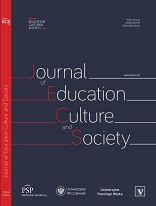The theater of Jan Klata. Struggling for a new audience
The theater of Jan Klata. Struggling for a new audience
Author(s): Aleksandra KonopkoSubject(s): Cultural Essay, Political Essay, Societal Essay
Published by: Fundacja Pro Scientia Publica
Keywords: Jan Klata; Polish theater; engaged theater; political theater; social theater; new audience; reinterpretation of classical dramas; pop culture; Polish Catholicism; national myths and symbols
Summary/Abstract: This short text presents the characteristics of theater works by the director, Jan Klata. I attempt to investigate the changes in contemporary Polish theatrical language. The evolution of theater perception, the expressive aesthetics of Klata’s performances and topics that began the fight not only over the new theater that would be a place of socio-political discourses but also for the new audience. In the introduction I present J. Klata and describe the circumstances that accompanied his theater debut. Thereafter, referring to J. Klata’s staging of classical works, I point out the characteristics of his theater and describe how the phenomenon of reinterpretation functions in contemporary theater. I then try to question the explicit labeling of J. Klata’s works as “post drama theater” or “political theater” by paying special attention to analyzing the director’s works in a social context. This political and social background of J. Klata’s performances contributes to the fact that his work is perceived as one of the leading examples of “engaged theater”. The staging means of expression applied by the director and his often radical interference in the texts of works from the literary canon have encouraged younger directors to make their own daring experiments . What was perceived as “revolutionary” and controversial at the time of J. Klata’s debut, today, only seven years later, has become standard in Polish theater.
Journal: The Journal of Education, Culture, and Society
- Issue Year: 1/2010
- Issue No: 2
- Page Range: 125-138
- Page Count: 14
- Language: English

